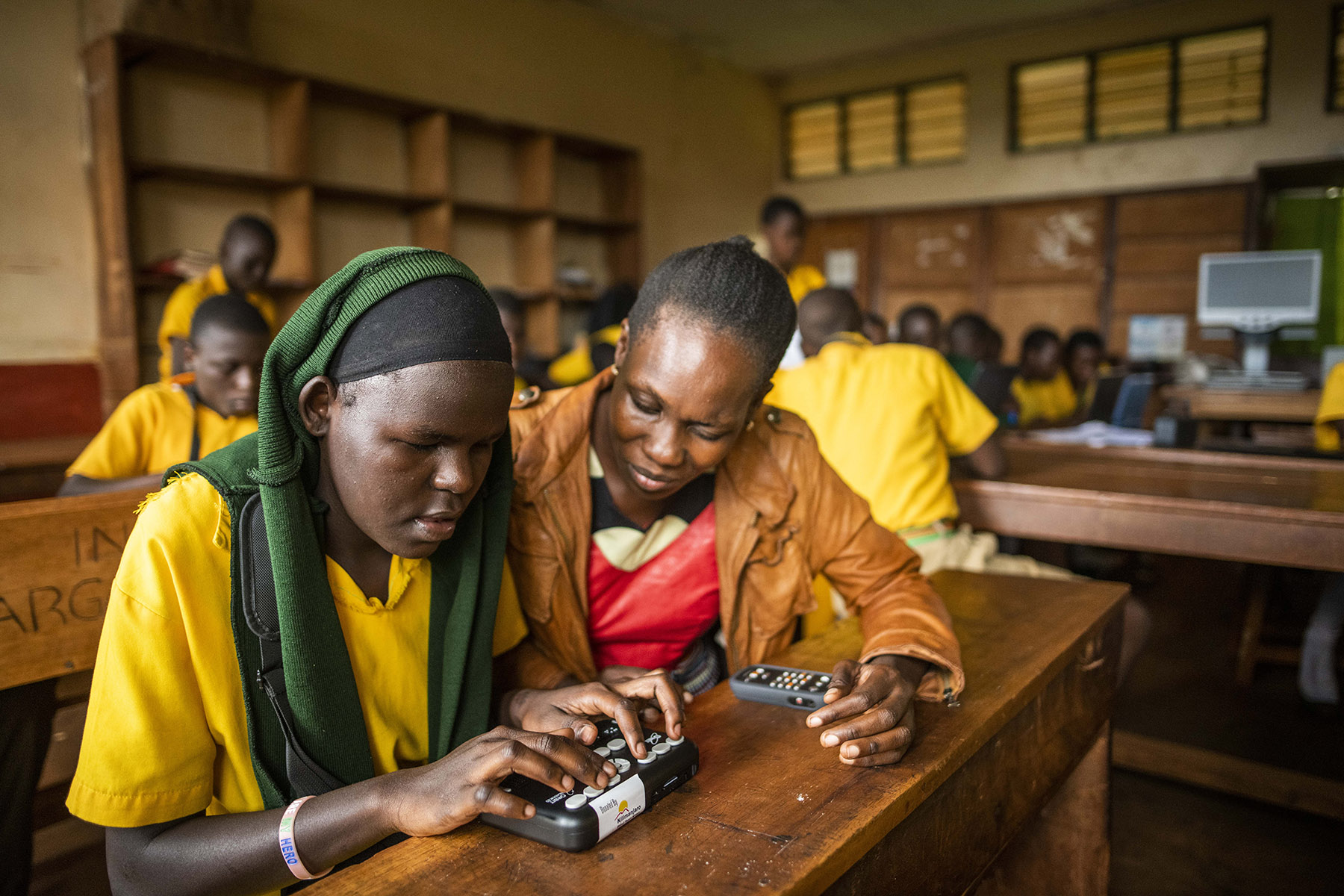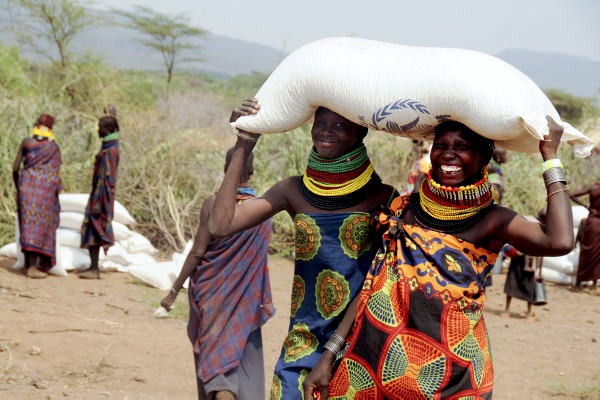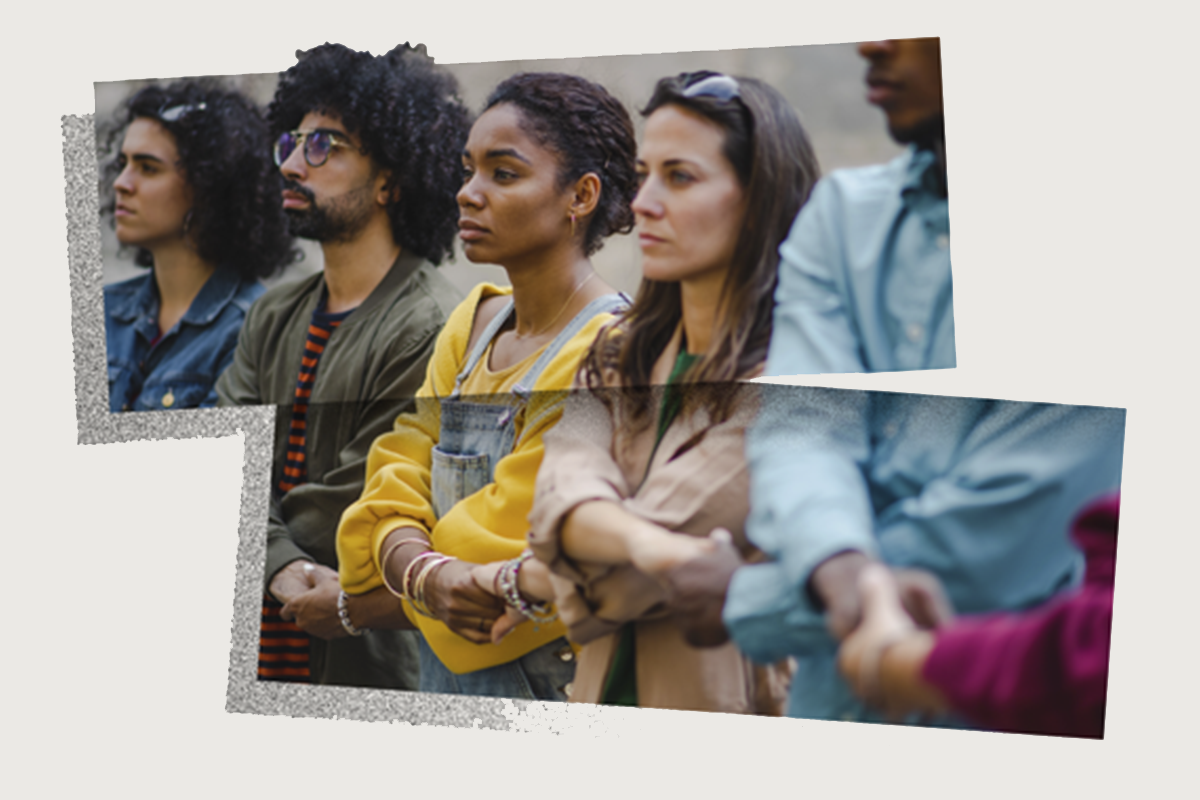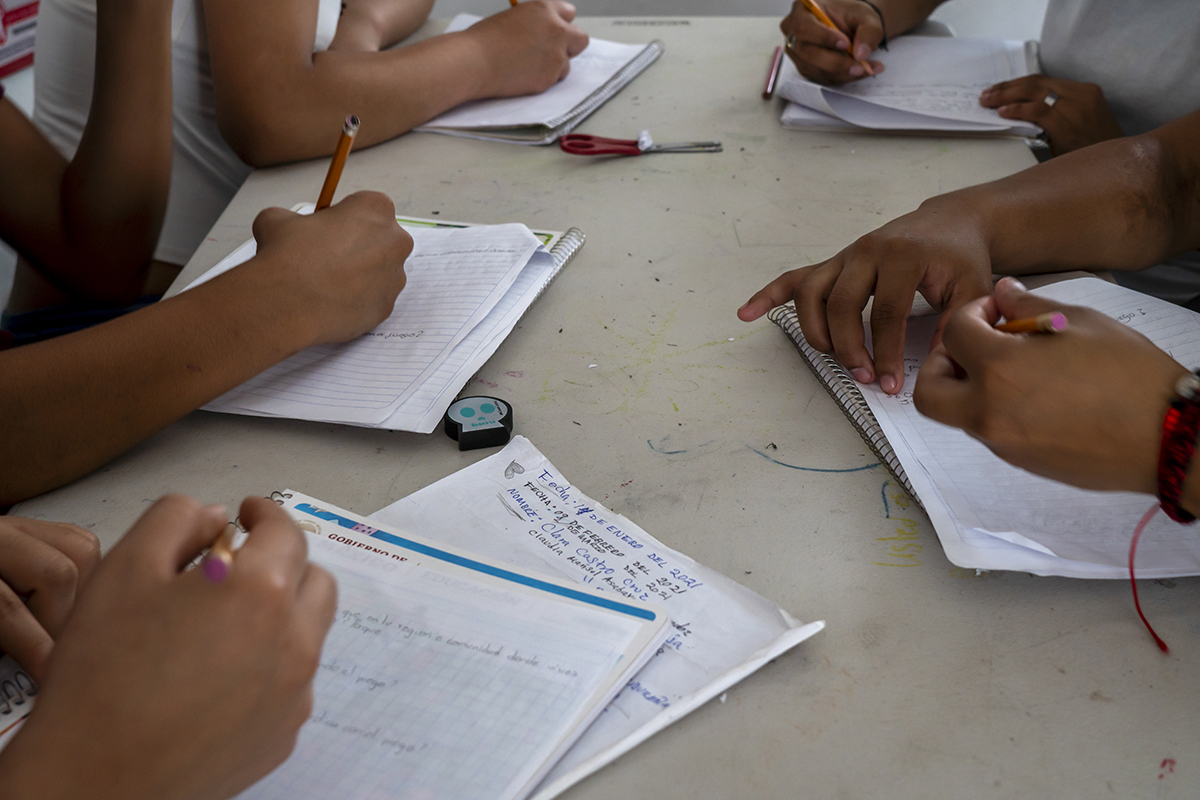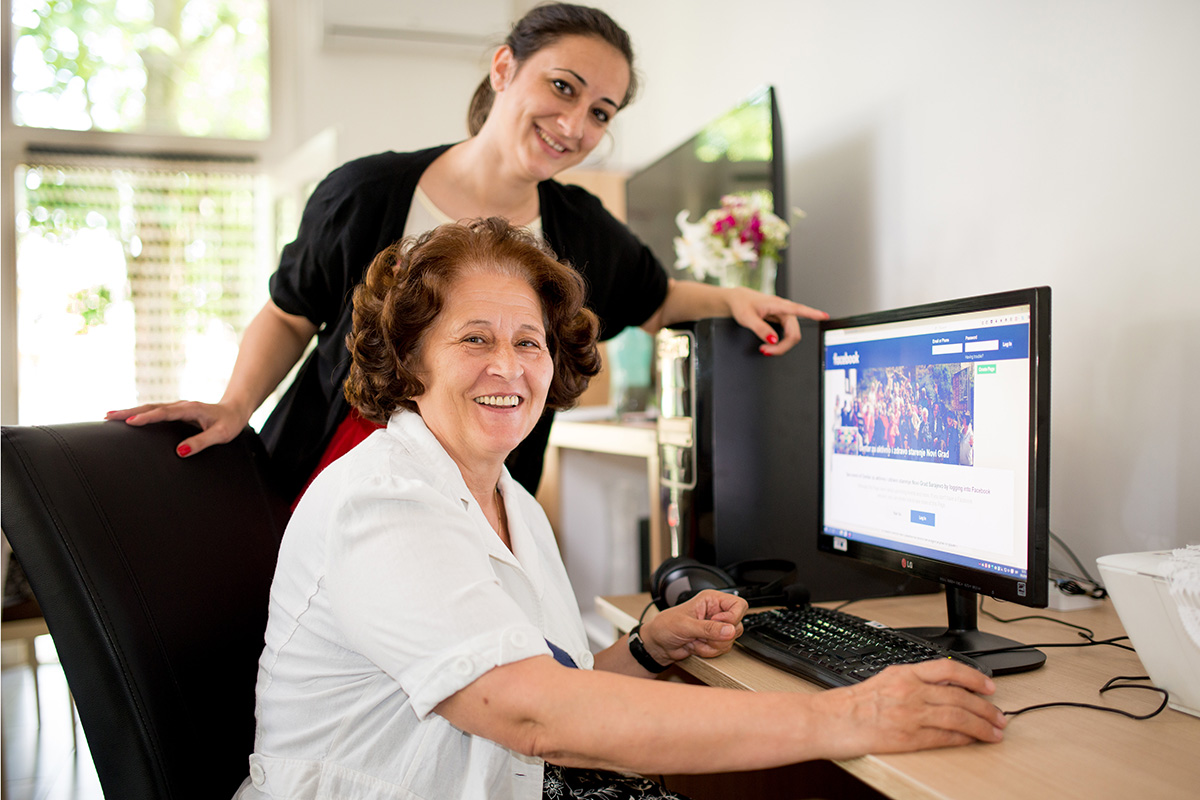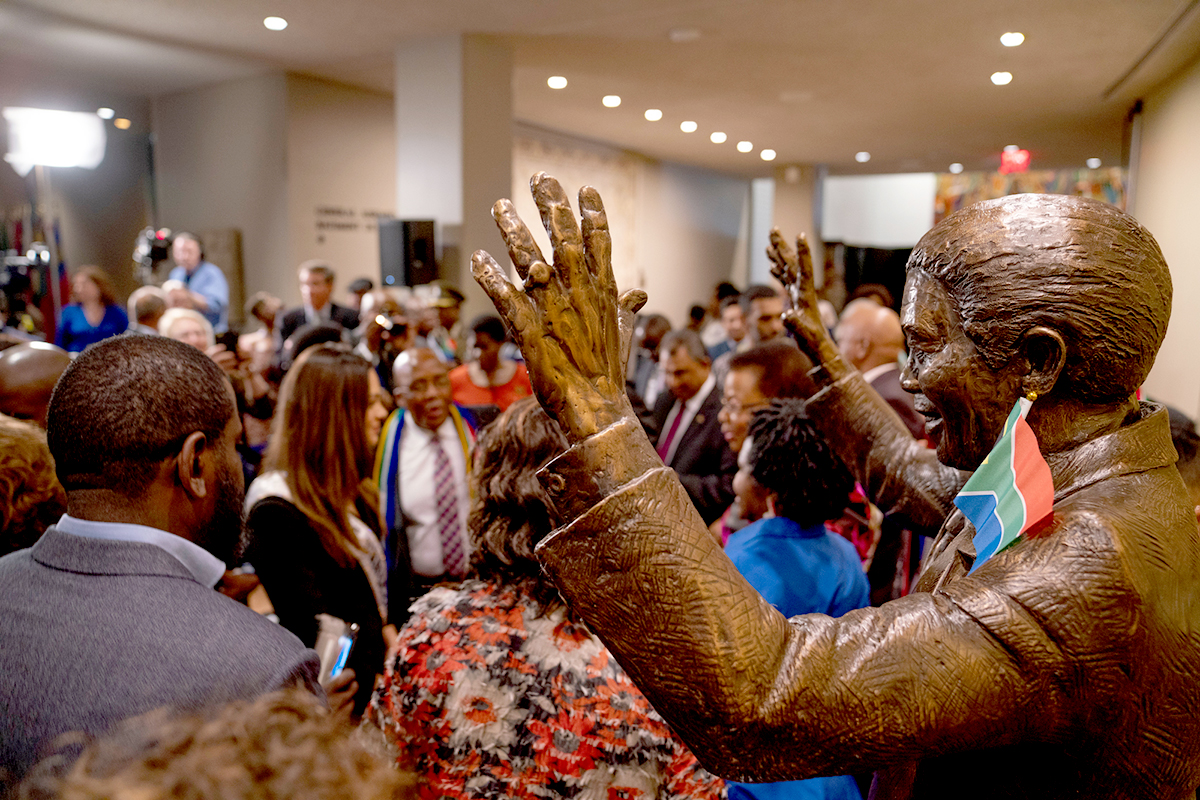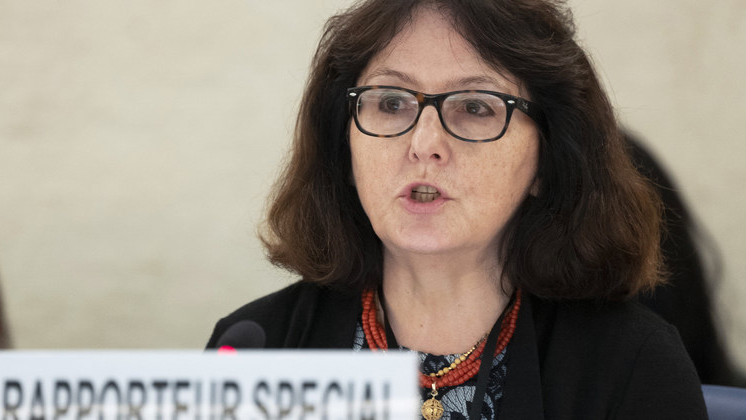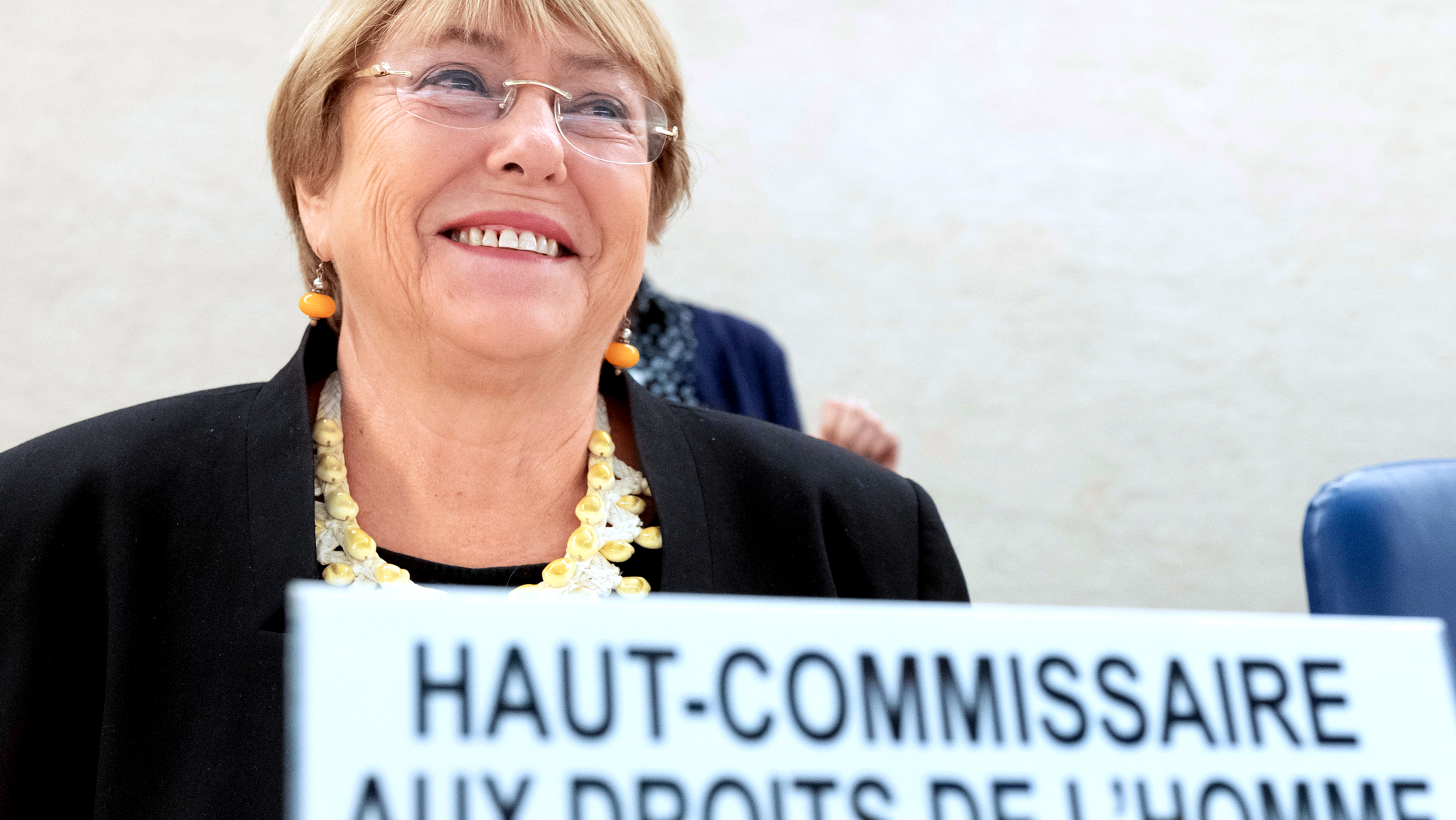When we vote, we're not just choosing a leader, a lawmaker, our local councillor or between two opposite policies. We're shaping the policies that have real impact in our lives. But, who should ensure that citizens receive accurate information? The media, political parties and electoral regulators have a role to play. Because when information is accurate, extensive and available, our elections remain free and fair, and democracy thrives. Learn more about how UNESCO protects freedom of expression and the safety of journalists.
Human Rights
Some people use messages that violate other people's rights to dignity, equality and safety. When does free speech become criminal 'hate speech' and how do we best respond to it? Navigating that fine line isn't easy. But, in the interests of protecting human rights for all we can - and must- work together more intensively to address the problem. Learn more about how UNESCO protects freedom of expression and the safety of journalists.
Braille is a tactile representation of alphanumeric symbols using six dots to represent each letter and number, and even musical, mathematical, and scientific symbols. It is used by blind and partially sighted people to read the same books and periodicals as those printed in a visual font. Persons with vision impairment are more likely than those without to experience higher rates of poverty and disadvantage. On World Braille Day (4 January), the United Nations recognizes Braille as essential for education, freedom of expression and opinion, access to information and social inclusion.
The concept of solidarity has defined the work of the United Nations since the birth of the Organization. The creation of the United Nations drew the peoples and nations of the world together to promote peace, human rights and social and economic development. The Organization was founded on the basic premise of unity and harmony among its members, expressed in the concept of collective security that relies on the solidarity of its members to unite “to maintain international peace and security.” On this International Human Solidarity Day let us continue celebrating our unity in diversity.
On World AIDS 2021, the World Health Organization calls on global leaders and citizens to confront inequalities and to overcome the growing disparities in access to essential HIV services.
The principles of equality and non-discrimination are at the heart of human rights. Equality is aligned with the 2030 Agenda by addressing and finding solutions for deep-rooted forms of discrimination that have affected the most vulnerable people in societies. On Human Rights Day this year, we're calling for a new social contract with equality at its core. By addressing deep-seated discrimination with human rights, we can move towards a fairer and more inclusive world - because we're all human, and we're all equal.
The United Nations is committed to strengthening tolerance by fostering mutual understanding among cultures and peoples. This imperative lies at the core of the United Nations Charter, as well as the Universal Declaration of Human Rights, and is more important than ever in this era of rising and violent extremism and widening conflicts that are characterized by a fundamental disregard for human life. The International Day for Tolerance (16 November) further reminds us that tolerance is not only a moral duty, but also a political and legal requirement for individuals, groups, and States.
ILO defines long-term care (LTC) as the support that is needed by older persons with limited ability to care for themselves due to physical or mental conditions, including chronic diseases and multimorbidity. Well-adapted and high-quality long-term care can enhance older people’s well-being, dignity and rights, while also supporting their families. It is essential that better access to adequate long-term care benefits and services is provided to meet people’s needs.
The digital divide persists between more and less connected countries, communities, and people. Enabling all the world's people to access and use digital technologies and closing digital divides remains a challenge to achieve the SDGs by 2030. This International Day of Older Persons (1 October) calls for “Digital Equity for All Ages” and affirms the need for access and meaningful participation in the digital world by older persons. The Observance also highlights the need for a legally binding instrument on the rights of older persons and a human rights approach for a society for all ages.
Together, young people are standing up and fighting for a world free of poverty, racism, sexism, ableism and all forms of violence, inequality, and discrimination. For LGBTIQ+ youth, this is a fight for survival. LGBTIQ+ youth are more likely to experience family rejection, poverty, discrimination, bullying, violence, and exclusion from education. With great courage and resilience, young LGBTIQ+ people lead change and stand up for a future that is safe, respectful, empowering and celebrates the beautiful diversity of humankind. Take a stand with them through the UN Free and Equal campaign.
Dr. Ralph Bunche, a strong ally of Dr. Martin Luther King, Jr., was the first African-American to win the Nobel Peace Prize and Dr. King the second. Hear from Andrew Young, who was present then as a young activist and went on to become the first African-American Ambassador from the United States to the UN. See how racism in Washington DC prompted Dr. Bunche to turn down an offer from the US State Department and instead pursue a career at the UN. And learn how this pioneer peacemaker went from experiencing racism in his own life to blazing a trail of justice for others around the world.
When a journalist is attacked for his or her work, not only is the journalist's individual right to freedom of expression violated, but also the collective rights of society to access information. Silencing a journalist should not only be a concern for one individual or journalistic union, it is an issue that affects society as a whole, its present and its future. Learn more about how UNESCO protects freedom of expression and the safety of journalists.
As societies are becoming more polarized with hate speech on the rise, Nelson Mandela’s calls for solidarity and an end to racism are particularly relevant today. The pandemic too has further exposed our vital need for solidarity. The UN Secretary General António Guterres asks we honour Madiba’s call to action and be empowered by his legacy. On Nelson Mandela International Day (18 July), people around the world are asked to perform 67 minutes of public service. Take the Mandela Quiz to test your understanding of this great leader and learn the reason for the number 67.
Rape is widespread all over the world, and all countries, as well as the UN, need to do more to improve legislation to improve conviction rates and protect women, Dubravka Šimonović, the UN Special Rapporteur on violence against women, its causes and consequences, has told UN News.
In her last report for the UN in the role, entitled: Rape as a grave and systematic human rights violation and gender-based violence against women, Ms. Šimonović, a highly experienced independent human rights expert, calls for governments to ensure that rape laws are in line with international human rights legislation which, she says, has evolved significantly over recent decades.
Speaking to UN News’s Conor Lennon, Ms. Šimonović said that impunity remains a major problem.
"I understand the people I speak to in my current job, because I've been in their shoes: I've been arbitrarily detained. I've experienced enforced disappearance.” In this episode of Awake at Night, we meet Michelle Bachelet, now UN High Commissioner for Human Rights. Michelle was the first female President of Chile for the Socialist Party. She speaks of how she and her mother were taken to a clandestine detention centre; of exile in Australia and East Germany; of her motivations to study medicine and return to Chile and why she remains a prisoner of hope. "We may not be all responsible for the past, but we are responsible for the future."

